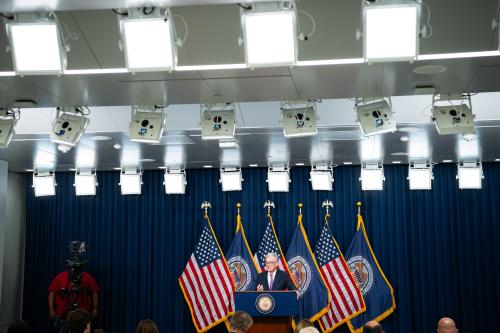“If not the dollar, then what?” asks Eswar Prasad in his new book, The Dollar Trap: How the U.S. Dollar Tightened Its Grip on Global Finance. In the book Prasad, Tolani Senior Professor of Trade Policy at Cornell University and a Brookings senior fellow in the Global Economy and Development Program at Brookings, shows how, paradoxically, the U.S. dollar became the world’s most important reserve currency after the global financial crisis. As he wrote in the Harvard Business Review,
The government bonds of many other major economies, such as the euro zone, Japan, and the UK, look shakier in the aftermath of the financial crisis. Moreover, even central banks, such as the Bank of Japan and the Swiss National Bank, are engaged in monetary operations that will weaken their currencies. They are also intervening directly in foreign exchange markets to prevent currency appreciation—in other words, adding to rather than serving the demand from the rest of the world for safe assets.
“Don’t expect a decline in the dollar’s prominence,” Prasad added. “Mostly for want of a better alternative, it will remain the dominant reserve currency for a long time to come.”
On January 15 at 2:00 p.m., Prasad will discuss his new book in an event at Brookings moderated by David Wessel, director of the new Hutchins Center on Fiscal and Monetary Policy at Brookings, and including Charles Collyns, chief economist of The Institute of International Finance; Luis Alberto Moreno, president of the Inter-American Development Bank; and Sri Mulyani Indrawati, managing director of the World Bank.
Watch the video below to learn more about The Dollar Trap.
(Video produced by Princeton Press for the book’s micro site)



Commentary
If Not the Dollar, Then What?
January 14, 2014